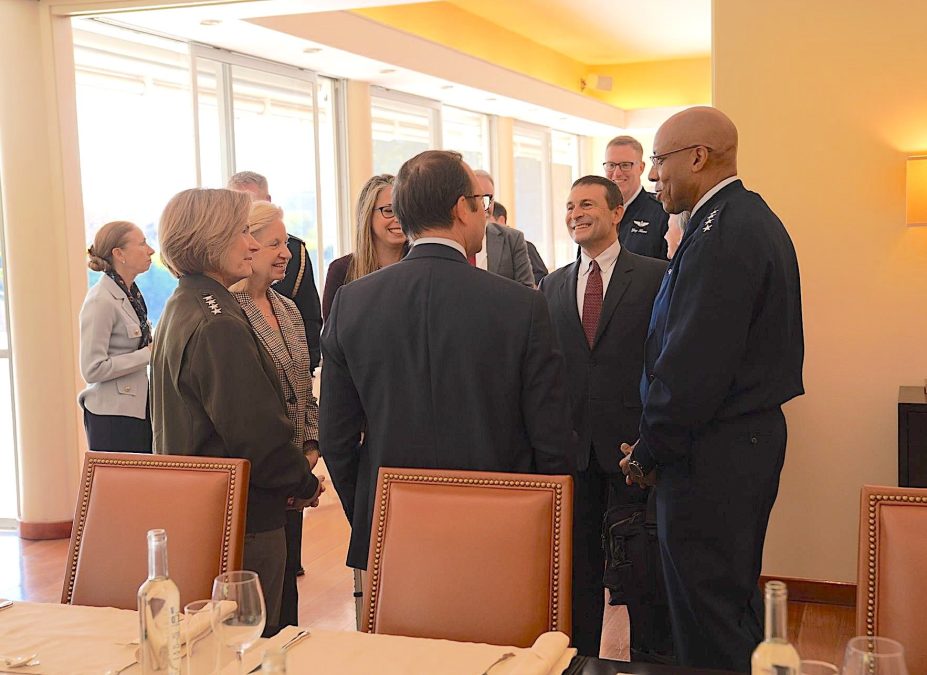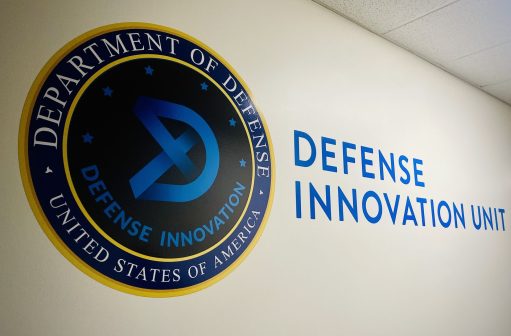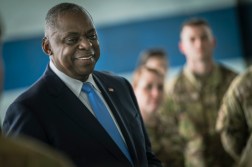DIU chief joins military leaders in Chile to discuss emerging technology priorities

Defense Innovation Unit Director Doug Beck traveled to Chile this week, where he joined senior U.S. military leaders and their counterparts from the Latin America and Caribbean regions to discuss shared aims for applying AI and machine learning to confront complex, collective security challenges.
“This is our hemisphere that we live in, and so those allies and partners are critical to us,” he told DefenseScoop Thursday on the sidelines of an event in Washington hosted by the Center for Secure and Emerging Technologies.
While it has operated as a key Defense Department innovation hub for almost a decade, DIU was elevated and realigned to be a direct report to the secretary of defense at the start of Beck’s tenure last year. At that time, Beck — a Navy reserve captain and former Apple executive — unveiled his strategic vision for DIU 3.0. Under that plan, the unit aims to scale capabilities it has already helped mature, while explicitly focusing on the most critical, real-world gaps by physically embedding officials within the combatant commands to match approved technologies that can support existing needs.
In Chile, Beck connected with DIU’s first embed at U.S. Southern Command, Sarah Cuellar, who is the unit’s key liaison for the region and is also the deputy director of its energy portfolio.
“She’s double-hatted and she’s fantastic. She has a military [special operations forces] background, a technology background, and she’s currently bilingual,” Beck said.
Southcom is primarily responsible for providing force protection, contingency planning and other capabilities in most areas of South America, Central America and the Caribbean. The command currently faces a range of unfolding and emerging threats, including those posed by transnational criminal organizations and adversaries like China and Russia.
According to Beck, DIU “actively uses Southcom as kind of a test bed for things that we might leverage in other places around the world,” including in autonomy or other intelligence tools. Both organizations, in his view, are relatively small and nimble, and seek to move really quickly.
“They’re an [area of responsibility] that has both a broad range of partners. And they also have a pretty broad maritime environment, which is important. And then there’s also a lot going on in the region itself that is also really important,” he told DefenseScoop.
The main reason for his visit to Chile was to attend the South American Defense Conference at the invitation of Gen. Laura Richardson, commander of Southcom, who co-hosted the summit alongside the Chilean defense chief. Chairman of the Joint Chiefs of Staff Gen. Charles “CQ” Brown was also in attendance.
“A major focus of the discussion was actually around technology — AI — and how do we leverage this technology in order to do things together?” Beck said.
Defense leaders from Argentina, Brazil, Colombia, Ecuador, Guyana, Paraguay, Peru, Suriname and Uruguay joined the American and Chilean officials for the conference, and representatives from Canada, France and the United Kingdom where there as observers.
In the separate remarks they delivered at the event, both Richardson and Brown each spotlighted intensifying needs for the military partners to collaboratively harness AI and jointly pursue efforts to enable space-domain awareness.
“Authoritarian, communist governments are attempting to seize all they can here in the Western Hemisphere — operating without regard for domestic laws or international laws. Malign state actors are increasingly using advanced technology to perpetrate corruption, disinformation campaigns, cybercrime, human rights abuses that undermine the fabric of democratic societies, and hide the truth from populations,” Richardson told attendees.
“In the rapidly evolving global security landscape, the need to integrate artificial intelligence and machine learning into defense and security functions, has transitioned from a forward-looking ambition to a here-and-now immediate operational necessity,” she said.
During his presentation, Beck said he sought to shed light on his organization’s evolution from DIU 1.0, to 2.0, to 3.0, and “what that means for taking capability and speed, and combining it with focus and scale to have strategic effect.”
“I also talked a lot about the criticality of international partnerships to that work, and how we’re working closely with partners around the world — that our allies and partners are one of the unique strengths that we have as a nation,” he added.
Looking ahead, Beck said the U.S. and its partner nations in the region are working out next steps and possible future collective engagements on emerging technology, as they continue to build momentum around joint efforts.
“It’s about getting that whole group together and enthusiasm around how we work together. There are a lot of ways that particularly data and AI can make a difference — for not just the major conflict-oriented forms of deterrence and warfighting — but also things like combating counterterrorism and transnational crime, securing fishing rights, all kinds of things that matter so much to these countries and that we can really work together as a team to help get at,” Beck said.
He’s deeply familiar with the region, noting that he spent a lot of time there as an Apple executive who had “the Americas” within his portfolio.
“So, I was not surprised to see how much technology is in the region. There’s a lot of great, for example, software that’s already been built in the region, as well as critical areas around the supply chain that’s already there,” Beck said.
However, the DIU chief noted that he was “encouraged” by the ways in which America’s partners in Southcom’s area of responsibility are actively pursuing military innovation.
“I think for me, it was a big ‘Aha!’ moment to see just how immediately some of the same kinds of technologies — for example, in domain awareness, that are so critical to us for deterring major conflict or winning if we [are] forced to fight — are also critical to these other strategic imperatives, like transnational crime, like securing a fishing rights, etc., that are very much front-and-center on all of their minds as well,” Beck told DefenseScoop.






